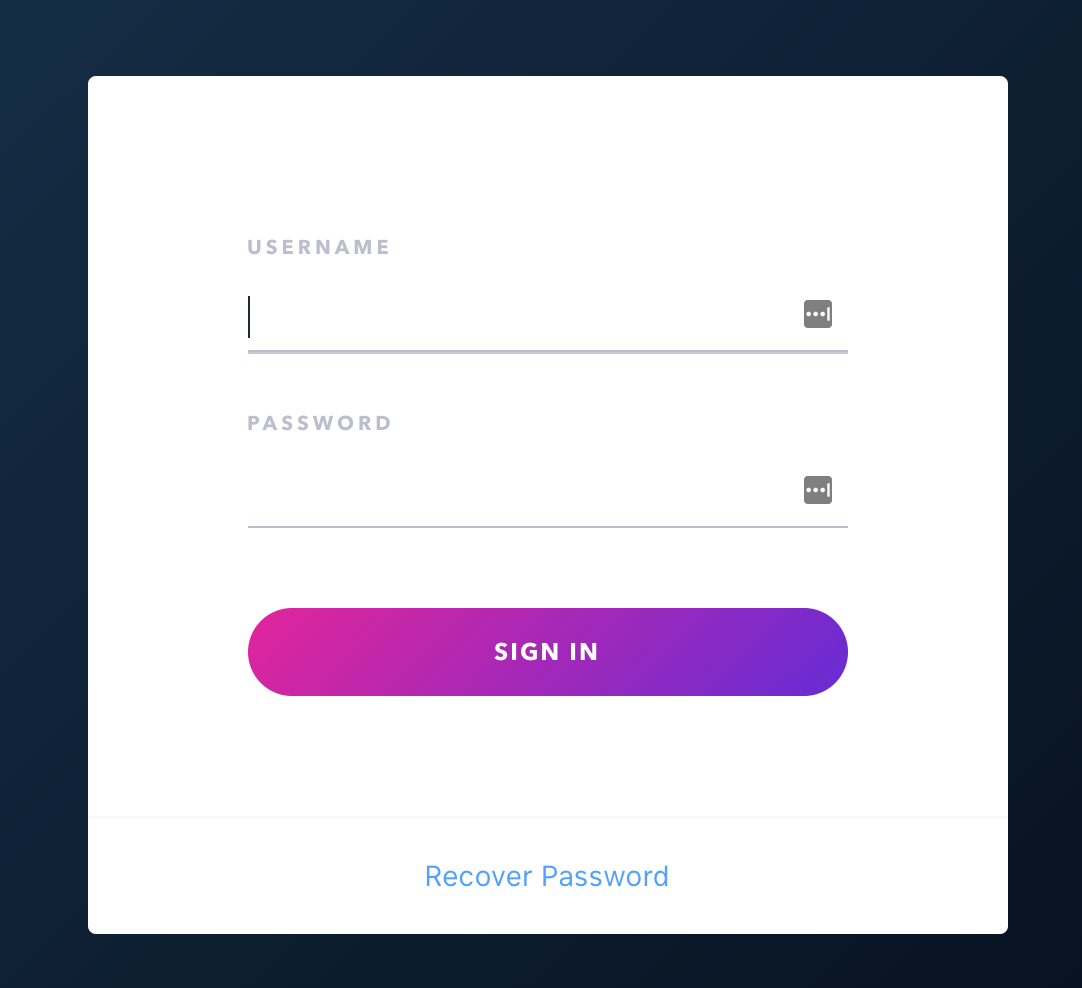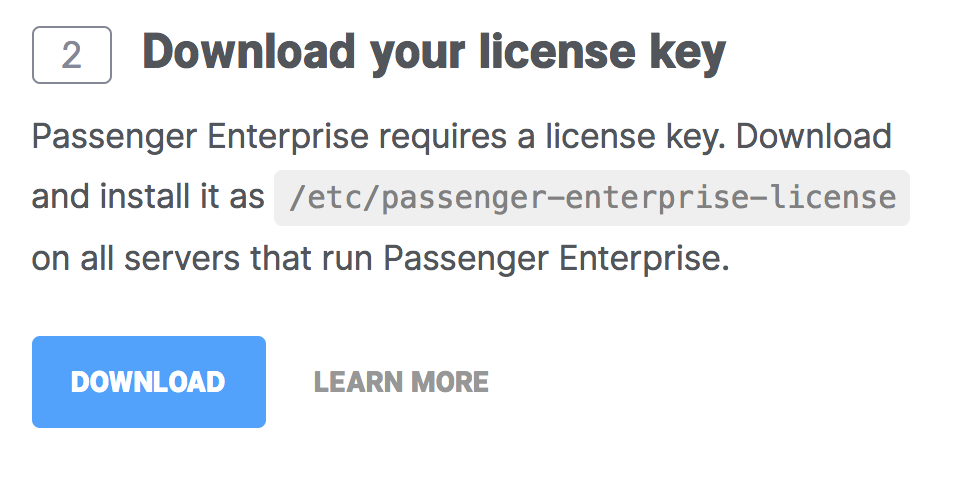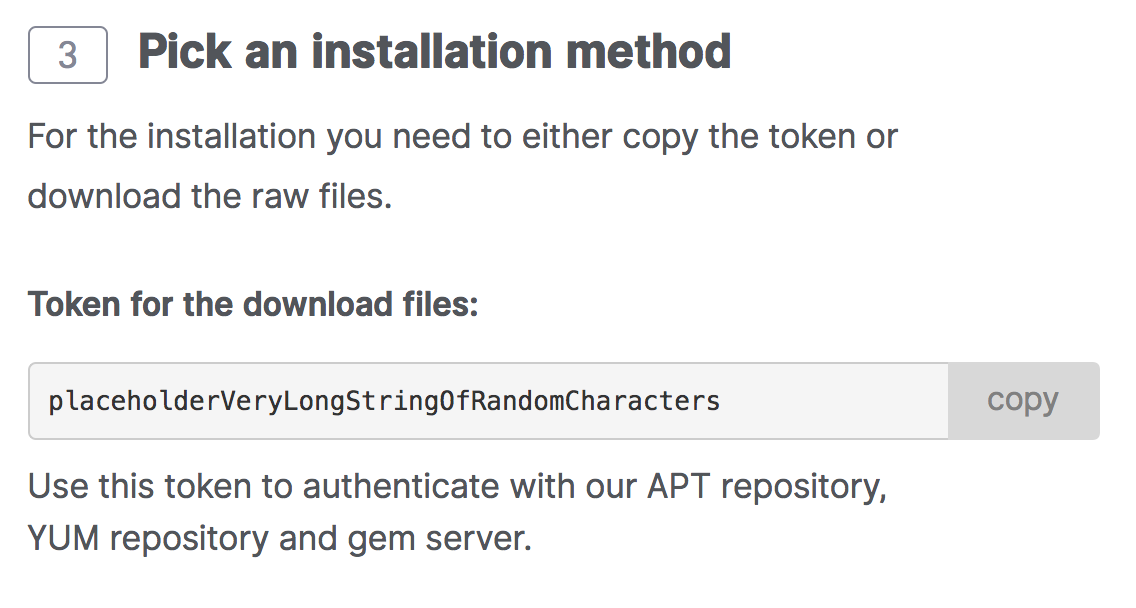Installing Passenger Enterprise + Standalone on a Digital Ocean production server
for Meteor apps + Debian 8 (with APT)
On this page, we will install Passenger. After installing Passenger we can begin with deploying the app.
Table of contents
- Loading...
Step 1: download and install your license key
Before you can install Passenger Enterprise, you need to download and install your license key. This is a regular file that you need to copy to your production server.
Please login to the Passenger Enterprise Customer Area.

Click on the Install button in the Customer Area.

Click on the button to download the license key.

The license key will be downloaded to your local computer. Copy this license key file to your production server, for example using scp:
local-computer$ cd /path-to-your-local-computer-download-folder local-computer$ scp passenger-enterprise-license adminuser@yourserver.com:
Replace adminuser with the name of an account with administrator privileges or sudo privileges.
Finally, login to your production server and save the file as /etc/passenger-enterprise-license:
local-computer$ ssh adminuser@yourserver.com production-server$ sudo mv passenger-enterprise-license /etc/passenger-enterprise-license production-server$ chmod 644 /etc/passenger-enterprise-license
Step 2: obtain your download token
Your download token is needed in order to install Passenger Enterprise. In the Customer Area, find your download token and copy it to your clipboard.

Step 3: install Passenger packages
These commands will install Passenger Enterprise through Phusion's APT repository.
Replace YOUR_DOWNLOAD_TOKEN with the download token you obtained in the last step.
# Install our PGP key and add HTTPS support for APT
sudo apt-get install -y dirmngr gnupg
sudo apt-key adv --keyserver hkp://keyserver.ubuntu.com:80 --recv-keys 561F9B9CAC40B2F7
sudo apt-get install -y apt-transport-https ca-certificates
# Add our APT repository
unset HISTFILE
sudo sh -c 'echo machine www.phusionpassenger.com/enterprise_apt login download password YOUR_DOWNLOAD_TOKEN >> /etc/apt/auth.conf'
sudo sh -c 'echo deb https://www.phusionpassenger.com/enterprise_apt jessie main > /etc/apt/sources.list.d/passenger.list'
sudo chown root: /etc/apt/sources.list.d/passenger.list
sudo chmod 644 /etc/apt/sources.list.d/passenger.list
sudo chown root: /etc/apt/auth.conf
sudo chmod 600 /etc/apt/auth.conf
sudo apt-get update
# Install Passenger Enterprise
sudo apt-get install -y passenger-enterpriseStep 4: check installation
After installation, please validate the install by running sudo /usr/bin/passenger-config validate-install. For example:
$ sudo /usr/bin/passenger-config validate-install * Checking whether this Phusion Passenger install is in PATH... ✓ * Checking whether there are no other Phusion Passenger installations... ✓
All checks should pass. If any of the checks do not pass, please follow the suggestions on screen.
Step 5: update regularly
Passenger updates and system updates are delivered through the APT package manager regularly. You should run the following command regularly to keep them up to date:
$ sudo apt-get update $ sudo apt-get upgrade
After an update, you should restart all your Passenger instances so that the updates take effect.
Next step
Now that you have installed Passenger, you are ready to deploy your Meteor application on the production server!